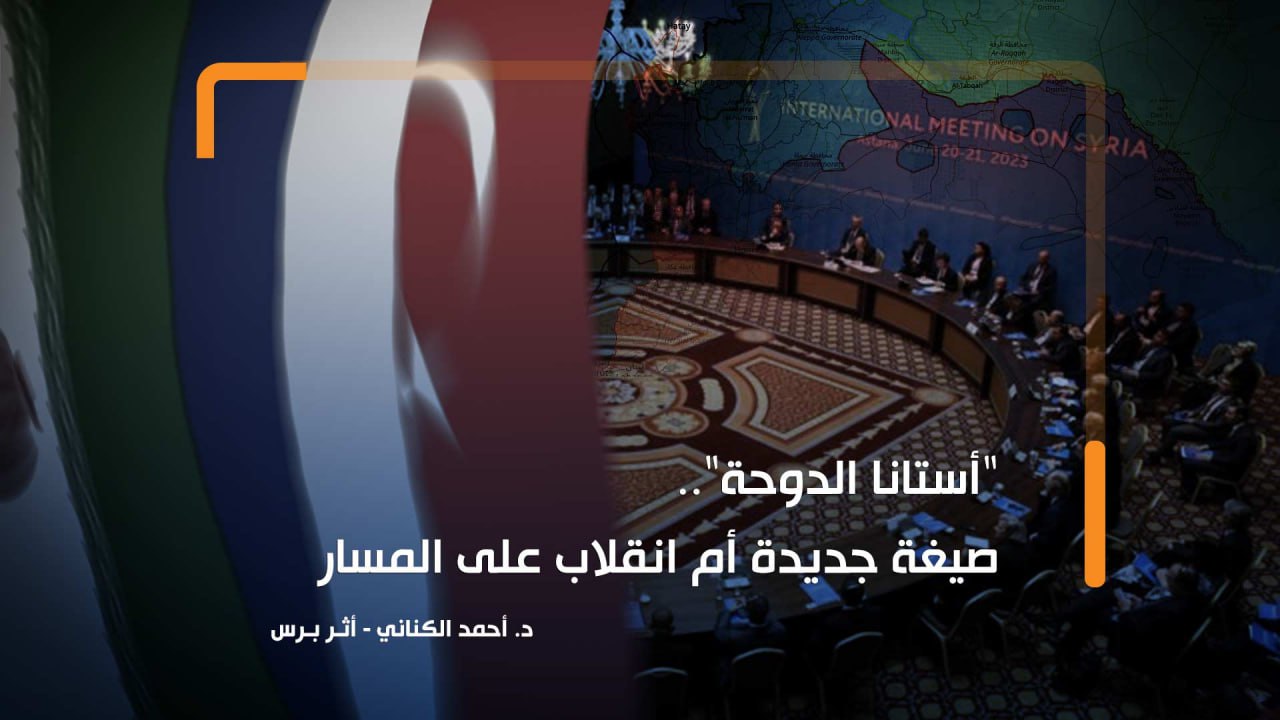The intensifying battles led by Hay’at Tahrir al-Sham (HTS), also known as Jabhat al-Nusra, in Aleppo, its countryside, Idlib, and Hama have raised pressing questions about the factors behind the group’s expanding operations. With clear and direct military and technical support from Ankara, Turkey’s role in remotely orchestrating these battles has become increasingly evident.
Shifting Alliances and Guarantees
Analysts suggest that these developments signal a significant shift: Turkey’s diminishing role as a guarantor for armed groups in northern Syria. As Ankara distances itself from this responsibility within the Astana process, attention has shifted to Moscow and Tehran, which remain guarantors alongside the Syrian government.
Dr. Elian Massad, head of the Internal Opposition delegation in Syria, described these events as a “direct coup” against the Astana process. Speaking exclusively to Athr Press, Dr. Massad argued that Turkey, a primary guarantor of the process, has dealt a major blow to Russia and Iran by supporting HTS, a designated terrorist organization.
Dr. Massad also highlighted how geopolitical distractions allowed Ankara to exploit the situation. Russia’s engagement in Ukraine and Iran’s focus on Gaza and Lebanon created a “vacuum,” enabling Turkey to advance its own agenda. He emphasized that these actions not only undermine the Astana process but also violate UN Security Council Resolutions 2170 and 2178 from 2014. Despite these resolutions, which permit the use of force against terrorist entities, there has been no international intervention in Syria against these groups.
Resolution 2170, for instance, identified foreign fighters linked to ISIS, Al-Qaeda, and Jabhat al-Nusra as targets for international action. However, Syria has yet to receive direct support or field assistance to combat these organizations.
Qatar’s Role in the Astana Process
Anas Joudeh, head of the National Construction Movement, offers a different perspective. He views the developments as part of an evolving Astana process rather than a complete reversal. He pointed to a recent meeting between the Iranian and Qatari foreign ministers in Doha, which coincided with the Doha Forum, as evidence of Qatar’s growing role in facilitating the Astana track. Iranian Foreign Minister Abbas Araqchi confirmed that the next meeting of Astana foreign ministers would take place in Qatar, given the presence of Iranian, Turkish, and Russian officials in Doha.
Joudeh emphasized Qatar’s participation as a critical factor, adding an Arab dimension to the Astana process and enhancing Arab-Syrian rapprochement. He speculated that Qatar’s diplomatic role might extend to managing and containing attacks in northern Aleppo, Idlib, and Hama.
Sustaining the Astana Track
In his exclusive comments to Athr Press, Joudeh stressed the difficulty of finding viable alternatives to the Astana process. While the Geneva track remains largely theoretical, Astana has proven to be the most practical and established framework for reaching agreements. He proposed bolstering the process through Arab committees, potentially including Qatar, Saudi Arabia, Jordan, or Egypt.
Joudeh also underscored the importance of key players like Saudi Arabia, the UAE, Algeria, and Egypt as mediators or facilitators. Without their involvement, he argued, efforts to secure stability are unlikely to succeed.
A Complex Landscape
The ongoing developments in the Astana process reflect the intricate international and regional dynamics shaping the Syrian conflict. Shifting alliances and competing interests continue to challenge the pursuit of stability and political solutions in the region.
This article was translated and edited by The Syrian Observer. The Syrian Observer has not verified the content of this story. Responsibility for the information and views set out in this article lies entirely with the author.


